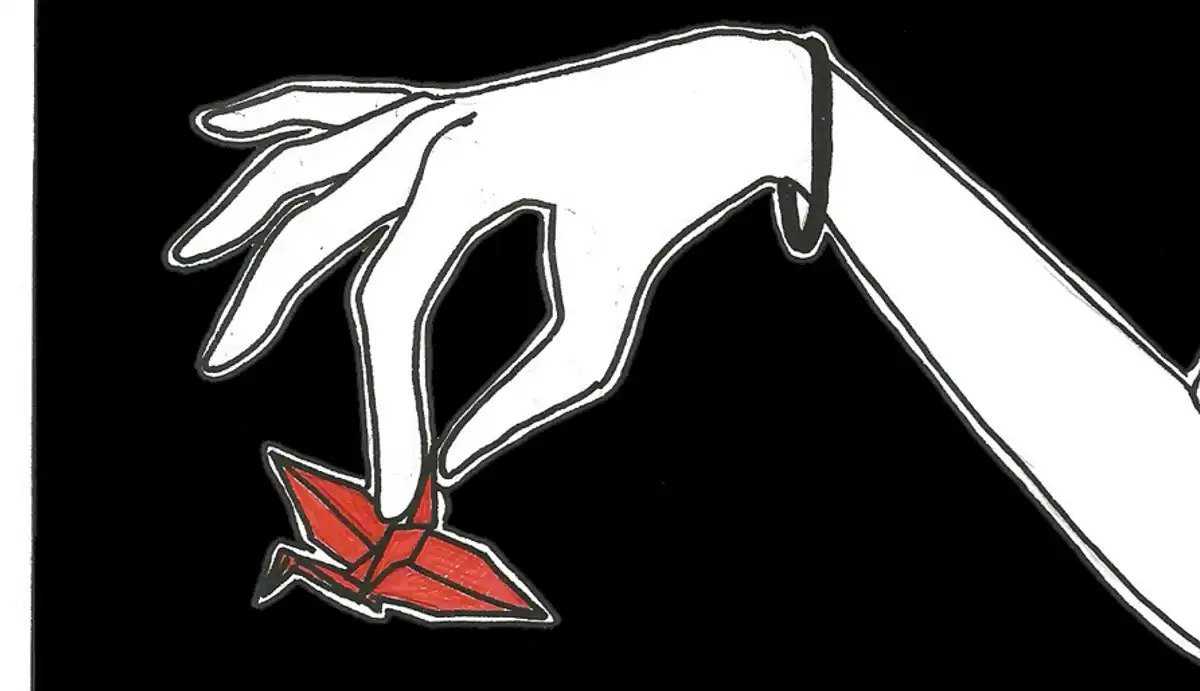Introductory note: I am less interested in recapitulating the details of Jennifer Pan’s life and crime than I am in deconstructing their subsequent media characterizations. In this piece, I have done my best to discuss a series of sensitive, specific issues while trying to avoid essentialism and ableist conflations of mental illness and violence. There are almost assuredly areas where I failed in this objective. Please don’t hesitate to make these areas known. Some relevant background: Jennifer Pan was the daughter of Vietnamese parents who had immigrated to Canada as political refugees. She was an exceptional student and talented musician until high school, when her grades began to slip (eventually to a point where Pan was no longer eligible to graduate). Unwilling or unable to confront these setbacks directly, she fabricated report cards, college acceptances, and university schedules to foster her parents’ belief in her continued academic success. Eventually, with the help of a boyfriend and several acquaintances, Jennifer Pan organized and attempted to carry out a hit against her mother and father. I first came across Jennifer’s story while working as a summer research assistant for the Psychology Department at Harvard University. The research project to which I had been assigned examined the impact of perceived similarity between one’s current and imagined future selves on time-sensitive decision-making processes (e.g., whether or not to procrastinate). I had just graduated from university, and was preparing to embark on an MPhil program overseas in October. Both my academic and personal lives felt increasingly future-fixated as I assumed an ever-growing volume of responsibilities to bolster my resume. Although my academic prospects were probably the best they had ever been, I was plagued by a visceral sense that even my best was inadequate. I considered myself inextricably wedded to maintaining the “momentum” I had built in high school and university, convinced – by a mixture of parental insistence and academic exposure – that only a hyper-vigilant, hyper-critical stance toward my current and future selves would mitigate an otherwise inevitable burnout. I thought I had learned to internalize (read: normalize) the pangs of inadequacy that accompany such forward-lurching, but hearing of Jennifer Pan (and of the mental-health dialogue her story produced) prompted a personal re-visitation. Writing this piece was extremely difficult, as I consider the subject matter to be of great personal import. Much of the reporting on Jennifer Pan’s case emerged in the form of sensationalist crime journalism pieces. These accounts, which used terms like “golden child” and “tiger parents,” read almost like parables as they decried Bich Ha and Huei Hann Pans’ strict parenting, and matter-of-factly traced a chain of causality connecting the Pan’s household dynamic to Jennifer’s ultimate enactment of familial violence. An author from The Washington Post celebrated emergent discussions among the children of Asian immigrants who identified with Jennifer’s backstory and specifically the attendant pressures of satisfying chronically unsatisfied parents. Those who offered their voices to these conversations empathized with Jennifer Pan’s need to maintain her parents’ validation (though many qualified their support, voicing disagreement with the lengths she went to to do so). I spent a great deal of time sifting through this material, feeling equally vindicated and perturbed as I read the testimonials of commenters whose childhoods so closely resembled my own. Perhaps surprisingly, it was one of the first times I had encountered other South/East Asian individuals speaking candidly about topics of depression, perceived inadequacy, etc. (That is, outside of a very close friend group whose comments were instrumental in the development of this piece!) On one hand, I was thrilled by the emergence of a much-needed dialogue on mental health issues in South/East Asian communities; on the other, I was concerned to observe this discourse presented in the bizarrely extreme context of patricide. The grizzly denouement of Jennifer Pan’s literal lifetime of stress and mental and physical self-injury served as the focal point of the journalistic and forum-based commentaries I browsed. Online commenters and op-ed contributors discussed patricide as if it were a logical consequent to “tiger parenting”, whilst concurrently recounting their own experiences with anxiety, depression and anger under similarly repressive households. It is evident from these discussions that success-driven parenting styles have sometimes-deleterious effects on children’s psychological well-being (it is important to note that sometimes they don’t!). However, to collapse the complexities of Jennifer Pan’s case into an instance of “tiger parenting gone awry” is to paper over what I believe to be a much more insidious problem within South/East Asian cultural spaces. Indeed, the stigmatization of mental health in South/East Asian immigrant communities is a significant but neglected component of Jennifer Pan’s story (and the stories of others like her). Anecdotally, I have noticed that when discussions of mental health do arise among these groups they are immediately folded into broader conversations of familial interdependence and parent-child dynamics (in essence, the omnipresent “tiger parenting” metaphors mentioned earlier). Responses to the Jennifer Pan case have not strayed drastically from this narrative. We have discussed ad nauseam how specific cultural relationships to success can negatively impact individuals’ senses of value, and yet we have failed to interrogate how those same relationships also structurally inhibit recovery. At the center of these success-oriented schema is an almost libertarian notion that achievement is directly proportional to skill and competence. The converse being that failure, defined along any axis, is a similarly intrinsic quality. This set of parameters creates a cyclical, intergenerational distancing effect when it comes to mental health issues. In my own experience, seeking help for anything aside from physical ailments has been an arduous process—due, in part, to my parents’ unwillingness to acknowledge that anything could be wrong with me, but also to my own fears of disappointing them. Like Jennifer, I had been raised in a household that centralized academic achievement over most other considerations. My adolescence was spent picking up and subsequently ditching extra-curriculars, attending SAT Math tutoring sessions, and “trying my best” to stay afloat in high school (sometimes a lie). Though my household was noticeably more permissive than those of my Asian friends and classmates, I still managed to cultivate a very toxic and aversive relationship to failure. I clung to the details of Jennifer Pan’s upbringing with rapt attention, mentally noting the enantiomeric analogue between her externally manifested display of violence and the inwardly directly equivalent I had endured. Like Jennifer, I had often taken extreme measures to hide my shortcomings and shame from my parents (we are both guilty of having forged academic documents to avoid parental scrutiny). Like Jennifer, I had silently agonized over academic setbacks, wondering if they represented fundamental laziness or insolence on my end. Vocalizing my distress was out of the question, so I discretely self-managed my unhappiness instead. The lack of a vocabulary for discussing psychological health metaphorically strands those contending with mental illness. In spite of the fact that aggregate rates of suicide and depression are relatively high among adolescent South/East Asian women as compared to other cultural groups, individual cases are still dismissed as “aberrations” by older community members. This is perhaps related to the system-invalidating potential of acknowledgement. Adherents to success-centric opportunity narratives can be quick to brush aside indications of emotional distress, even when they are explicitly vocalized; in my own experience, objections of this sort have been dismissed as a “white perspective” couched in “laziness.” System justification theory in social psychology would posit that the personal sacrifices associated with immigration significantly increase first generation immigrants’ commitments to opportunity and wariness of perceived failure. So, although I am hesitant to make any clinical assessments of Jennifer Pan’s mental health, I feel comfortable suggesting that she would have been better served by a cultural framework that did not actively encourage strugglers to keep quiet. I worry that the public handling of Jennifer’s story will ultimately contribute to this dynamic. The case’s violent overtones—relatable to individuals who have felt victimized under various household pressures—are likely alienating to the community members who most visibly uphold those dynamics. As a close friend put it, “This is not a good springboard for discussions within families! I can’t imagine talking with my parents and saying, ‘regarding mental health: see the Jennifer Pan case’. Especially given the extent of our previous conversations about the topic.” And she is right: an identifiably ‘extreme’ instance of pressure-related collapse is not likely to be well-received in a space that already responds hyper-defensively to “legally permissible” forms of suffering. I am left wondering how we are expected to reach these parts of our communities. Can we hold accessible dialogues about mental health (and its stigmatization) in the absence of dissonance-inducing tragedy? I believe that the answer to these questions is yes, with the caveat that meaningful action will require holistic understanding of the origins of mental health stigma in South/East Asian immigrant communities. It will also demand recognition of how these attitudes are shaped by the Western, neoliberal insistence upon individuality and success (a separate Skin Deep piece entirely!) Going forward, as activists and advocates we must be mindful of how our discussions interact with existing cultural landscapes. We owe a conversational reframing to those suffering silently. Not every South/East Asian child is Jennifer Pan, but if the online commenters have proved anything, it is that there are many who identify with her struggle. I know I do.
Jennifer Pan: Discussing the Perils of Tiger Parenting

Dealing with how we talk about mental health issues in the Asian community



